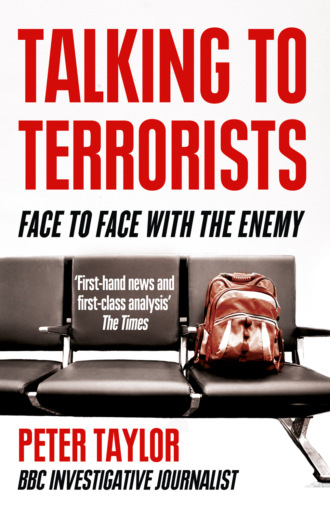
Полная версия
Talking to Terrorists: A Personal Journey from the IRA to Al Qaeda
From time to time I’m also asked if I ever feel uncomfortable about the moral dilemmas I inevitably face in reporting terrorism. Again, the reality is that I do.
In 1977 I made a series of documentaries for Thames Television’s This Week programme on security policy in Northern Ireland. I investigated allegations of ill-treatment at police interrogation centres, the impact in Nationalist areas of the Queen’s visit to the province in her Jubilee year, and conditions inside the Maze prison, where IRA prisoners were refusing to wear prison uniform, insisting that to do so would brand them as criminals. In protest they wore only blankets. As a result of these three programmes the Labour government of the day privately suggested to Thames Television that it was time for someone else to cover Northern Ireland, since my reporting had been ‘unhelpful’. The moral dilemma I faced was whether I should be making such programmes, given their propaganda value to the IRA. I decided that I should, as I believed they raised legitimate questions about security policy which the British government preferred not to be asked.
The abuses during interrogation that I investigated were a far cry from waterboarding and the other ‘enhanced interrogation techniques’ authorised by the Bush administration post-9/11 and used by the CIA against Al Qaeda suspects – which I analyse in the final chapter of this book. I got a lot of flak at the time from the government and from Sir Kenneth Newman, the Chief Constable of the Royal Ulster Constabulary (RUC), for my investigation, the findings of which were subsequently confirmed by Amnesty International. In the wake of the programme, the Northern Ireland Office (NIO) issued an unprecedented personal attack on me and the programme: ‘It is significant that the producers and reporter of this programme have produced . . . programmes in quick succession which have concentrated on presenting the blackest possible picture of events in Northern Ireland.’ But they were dark days, and there was little positive to report.
My investigation into prison conditions raised an additional and even more acute moral dilemma. One of the people I interviewed was the Secretary of the Prison Officers’ Association, Desmond Irvine. I met him in 1977 at Belfast’s Europa Hotel, and talked to him at length a few days before the interview to make sure he would be happy to be filmed despite the fact that the NIO was strongly opposed because of the risk, given that the IRA were targeting prison officers. I decided to go ahead, however, because Mr Irvine wanted to do the interview and I believed that it was important that his message got across, not least because it was coming from a Protestant prison officer. Remarkably, in the interview he described the IRA protesters not as common criminals, which was the NIO’s spin, but as men who had been fighting a war. He believed that he and his members were dealing with an army. Astonishingly, he said he understood why the prisoners felt the way they did.
After the programme he wrote me a letter thanking me for representing his views responsibly, and for giving ‘an accurate description of life at the Maze’. Two weeks later the IRA shot him dead. I was shattered when I heard the news.
At the funeral I stood at his graveside and silently cried. One Belfast journalist rang me at home and asked me how it felt to have ‘blood on my hands’. The pain and loss suffered by Desmond Irvine’s family, friends and colleagues, hit me hard, and I seriously considered packing up reporting Northern Ireland and ‘terrorism’. I later confronted the IRA about why they had shot dead a man who had given an interview expressing views that were consistent with the IRA’s own. I was told that he was killed not because of my interview, but because he was the Secretary of the Prison Officers’ Association. It was no consolation.
In Northern Ireland, the final recognition of reality was the British government’s realisation that it would have to talk to the IRA, and make the compromises necessary to bring the conflict to an end. This it ultimately did as the result of a long, sensitive and secret process played out over many years, in which the key link between the British government and the IRA was a remarkable man from Londonderry – or Derry. His name was Brendan Duddy, codenamed ‘the Mountain Climber’.
Конец ознакомительного фрагмента.
Текст предоставлен ООО «ЛитРес».
Прочитайте эту книгу целиком, купив полную легальную версию на ЛитРес.
Безопасно оплатить книгу можно банковской картой Visa, MasterCard, Maestro, со счета мобильного телефона, с платежного терминала, в салоне МТС или Связной, через PayPal, WebMoney, Яндекс.Деньги, QIWI Кошелек, бонусными картами или другим удобным Вам способом.




